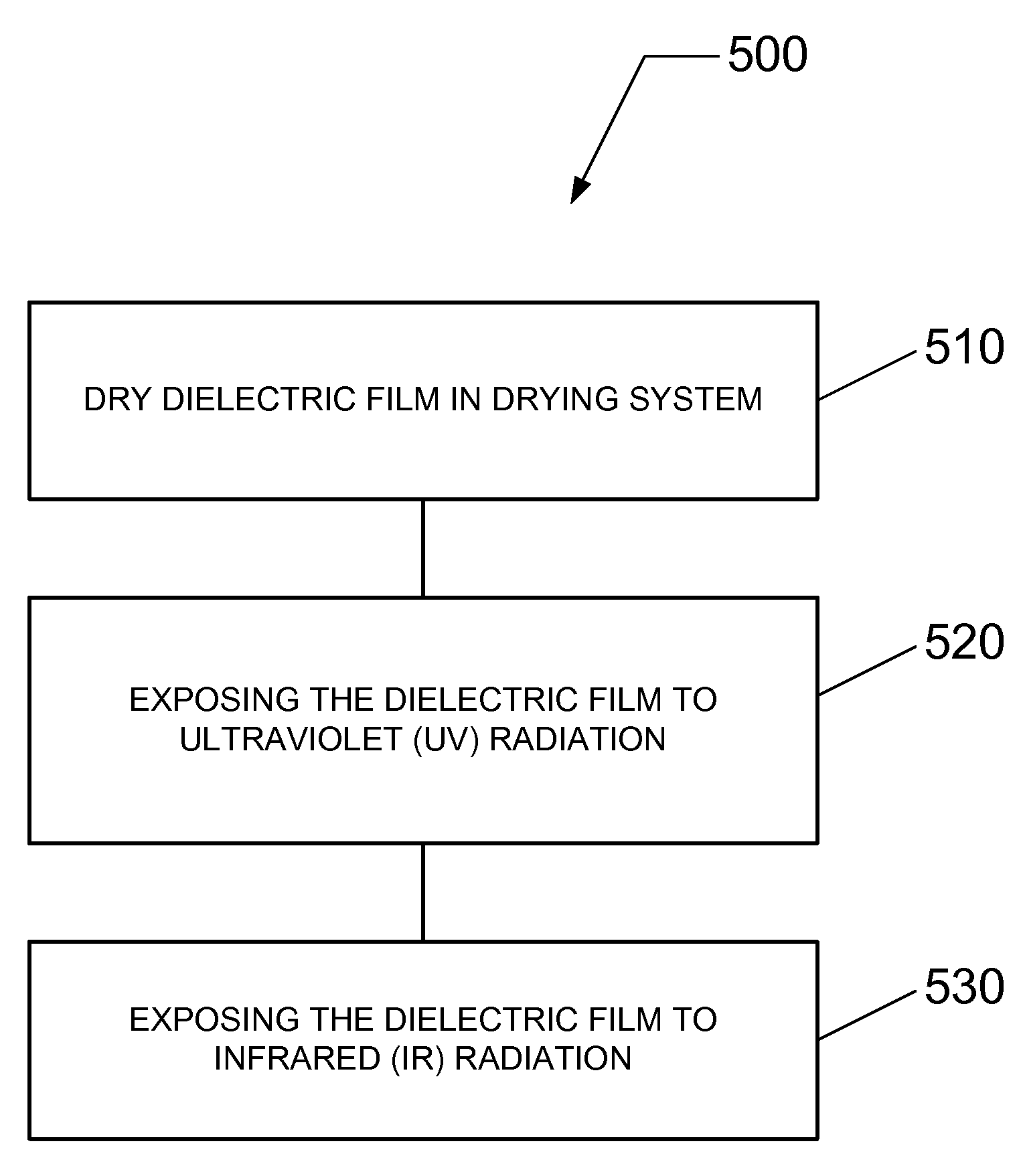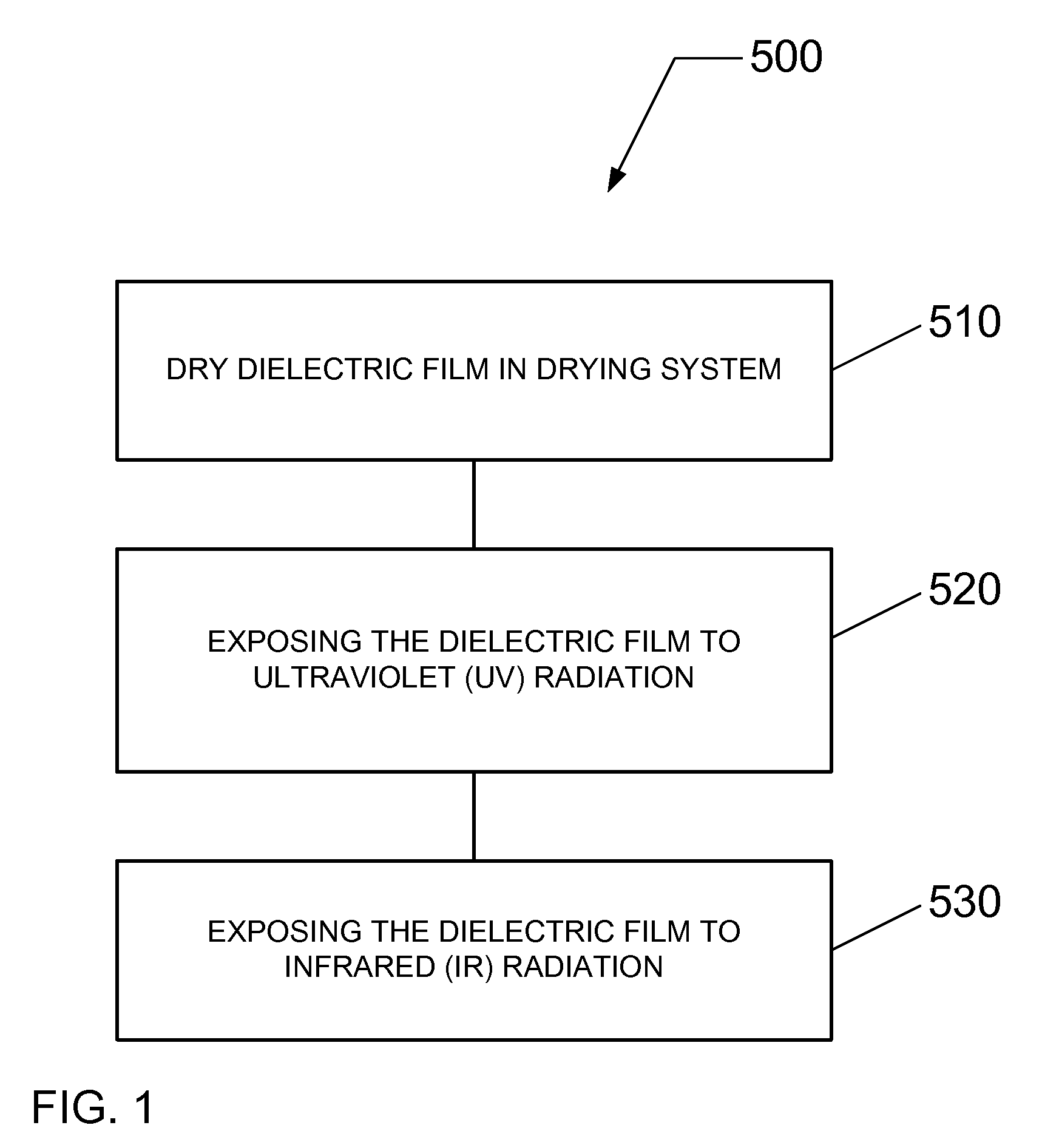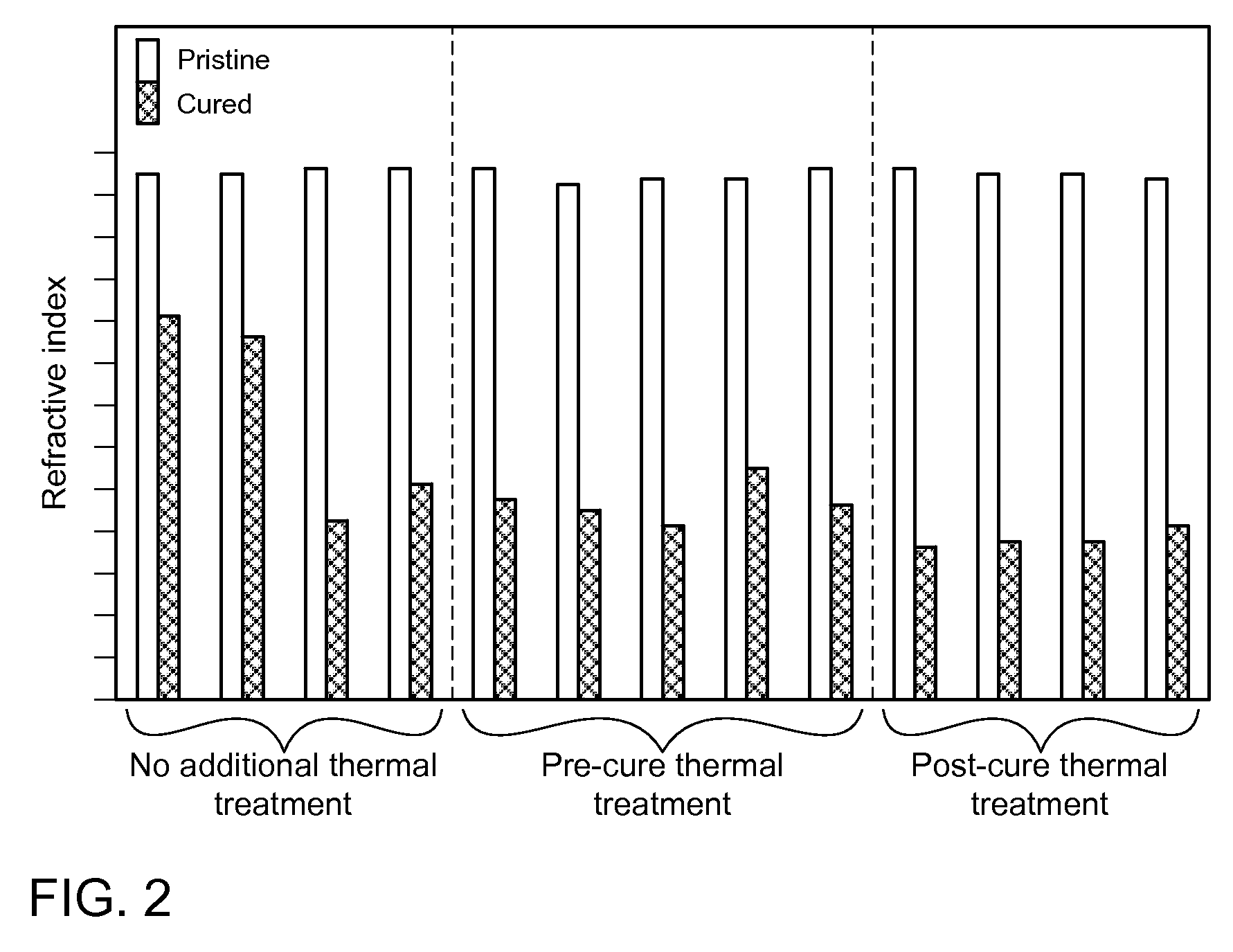Method for curing a dielectric film
a dielectric film and curing technology, applied in the direction of basic electric elements, electrical equipment, semiconductor/solid-state device manufacturing, etc., can solve the problems of deterioration of mechanical strength, interconnection delay is a major limitation factor, and low-k materials are less robust than more traditional silicon dioxid
- Summary
- Abstract
- Description
- Claims
- Application Information
AI Technical Summary
Benefits of technology
Problems solved by technology
Method used
Image
Examples
Embodiment Construction
[0019]In the following description, in order to facilitate a thorough understanding of the invention and for purposes of explanation and not limitation, specific details are set forth, such as a particular geometry of the processing system and descriptions of various components and processes. However, it should be understood that the invention may be practiced in other embodiments that depart from these specific details.
[0020]The inventors recognized that alternative curing methods address some of the deficiencies of thermal curing alone. For instance, alternative curing methods are more efficient in energy transfer, as compared to thermal curing processes, and the higher energy levels found in the form of energetic particles, such as accelerated electrons, ions, or neutrals, or in the form of energetic photons, can easily excite electrons in a low-k film, thus efficiently breaking chemical bonds and dissociating side groups. These alternative curing methods facilitate the generatio...
PUM
| Property | Measurement | Unit |
|---|---|---|
| dielectric constant | aaaaa | aaaaa |
| wavelength | aaaaa | aaaaa |
| wavelength | aaaaa | aaaaa |
Abstract
Description
Claims
Application Information
 Login to View More
Login to View More - R&D
- Intellectual Property
- Life Sciences
- Materials
- Tech Scout
- Unparalleled Data Quality
- Higher Quality Content
- 60% Fewer Hallucinations
Browse by: Latest US Patents, China's latest patents, Technical Efficacy Thesaurus, Application Domain, Technology Topic, Popular Technical Reports.
© 2025 PatSnap. All rights reserved.Legal|Privacy policy|Modern Slavery Act Transparency Statement|Sitemap|About US| Contact US: help@patsnap.com



